How To Use A VPN For Internet Privacy And Surfing?
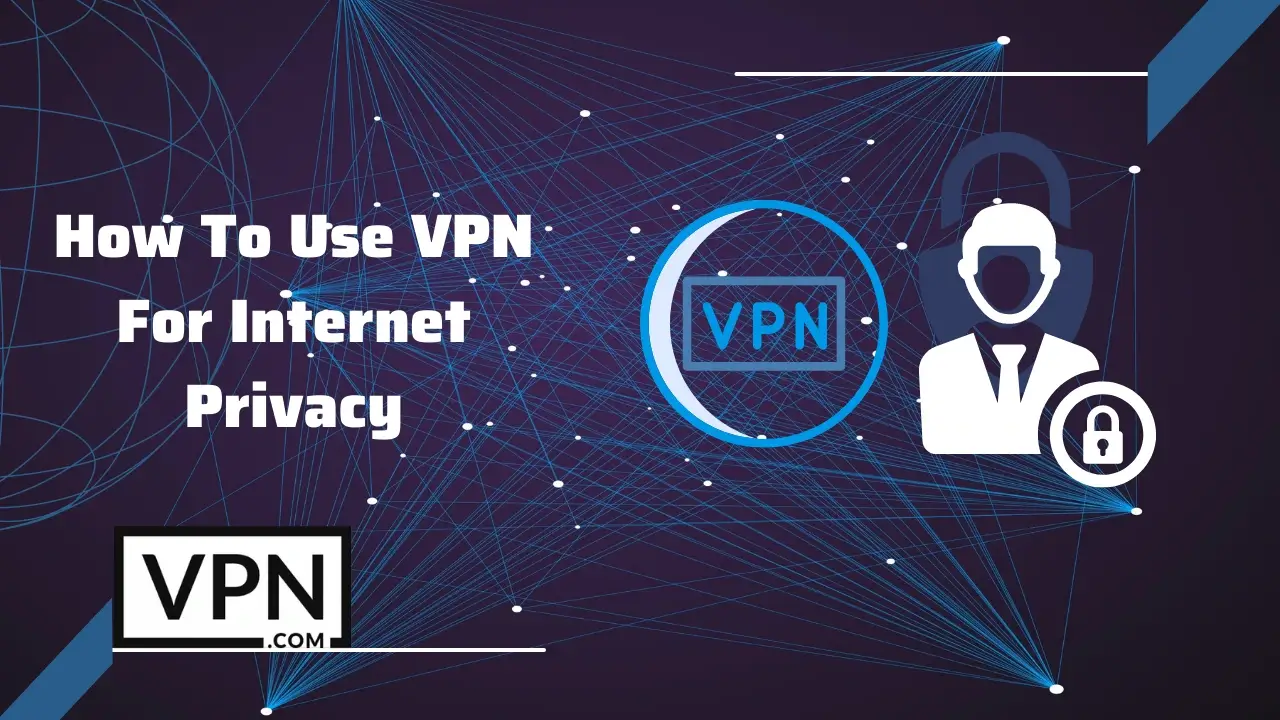
VPNs or Virtual Private Networks – are an incredibly important measure to take when it comes to online privacy and security. They provide an extra layer of security so that websites, hackers, and other malicious entities cannot gain access to the user’s sensitive information like credit card numbers, bank accounts and passwords.
These VPNs can also help protect against identity theft, a growing problem in this digital age. VPNs give users peace of mind by disguising their IP address – no one can track them as they browse through various websites securely.
VPNs may be complex but are essential for anyone who wants to continue engaging in online activity safely and securely without worry.
Need for Online Privacy and Security
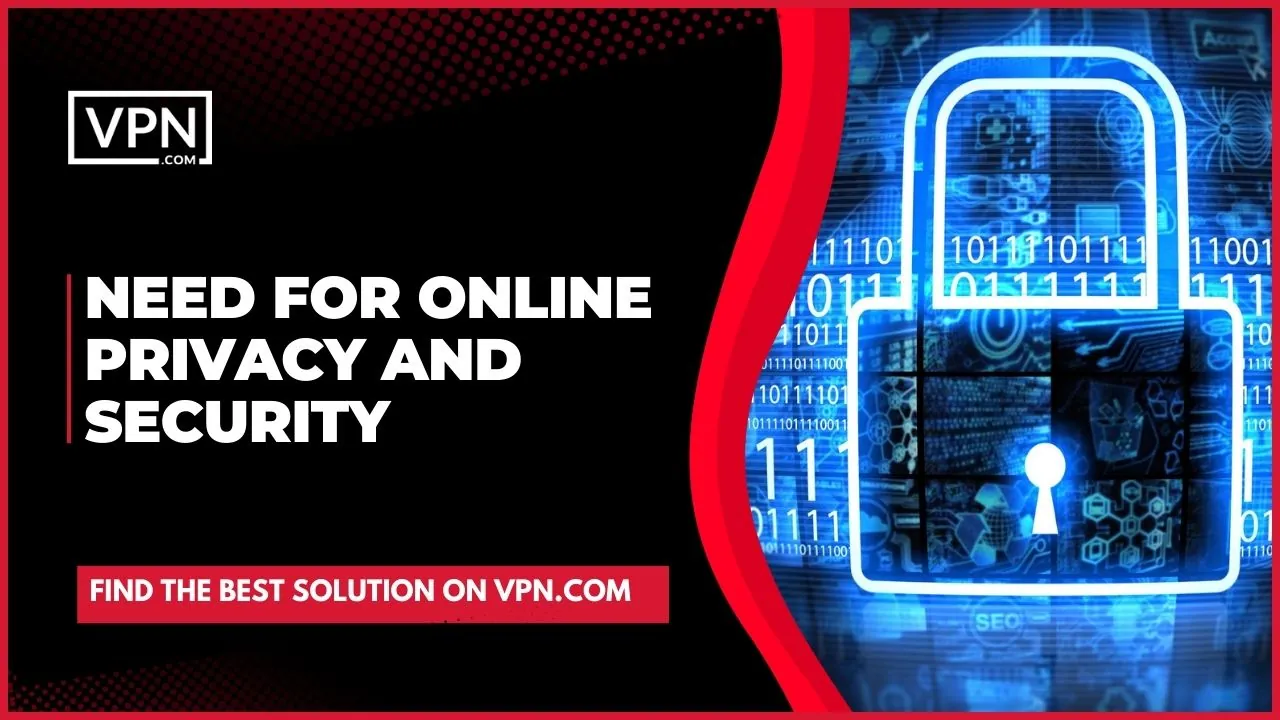
In the online world, even everyday actions have real and serious risks associated with them. VPNs (Virtual Private Networks) are essential tools to ensure secure data transmission and encryption of sensitive information.
Without proper security measures, users face a wide range of threats such as identity theft, fraud, surveillance and censorship – for which effective VPNs are powerful preventative measures.
VPN technology is designed to keep your web browsing private by routing your web connection through an encrypted tunnel that makes digital footprints unrecognizable.
It is more important than ever to be aware of potential risks when using the internet, and VPN for internet privacy are an effective way of taking precautions against these threats without compromising how one uses the net.
Get Started w/ NordVPN Today
- Top-rated VPN for OS unknown
- Ultra-fast speed in 2024
- Save 69% off with VPN.com Discount
- Plans starting at $2.99/month
- Rated 4.5/5 on Google Play with over 825,000 reviews
- Rated 4.7/5 on Apple App Store from 6,600 users
Why Online Privacy And Security Are Important?
In our online world, it is becoming increasingly difficult to protect sensitive information. VPN for internet privacy are one way to maintain privacy and security online, particularly when dealing with banking information or other personal details related to the user’s identity.
Other measures used to protect sensitive information include using secure passwords and ensuring that a user’s Wi-Fi connection is encrypted. Speaking of connections, people must also be mindful of their internet capabilities when browsing – avoiding public networks is key in order to ensure that government surveillance and censorship won’t pose a risk.
Ultimately, taking the appropriate measures such as VPN for internet privacy and safeguarding secure passwords can help users protect their identities from theft and fraud, while preserving their personal and professional reputations.
Risks And Threats To Online Privacy And Security
In our increasingly digital world, hackers and cybercriminals pose more of a threat than ever before. VPNs (virtual private networks) can help protect personal data, but it is still important to exercise caution online when transmitting sensitive information in order to remain secure.
Corporate surveillance and opaqueness of data collection can also lead to identity theft and other privacy issues. Malware and phishing attacks are common across the internet, so regular users must take basic security measures like antivirus software installation or apply for two-factor authentication for critical accounts.
Vulnerabilities in Wi-Fi networks further place them at risk since malicious actors can hijack connections and gain access to confidential information if proper precautions are not taken.
It is important to recognize that being a responsible digital citizen requires taking practical steps like VPN protection, avoiding suspicious emails, installing updated antivirus programs, and securing home/public Wi-Fi networks in order to remain safe from malicious attacks by cybercriminals.
Real-World Examples Of Privacy And Security Breaches
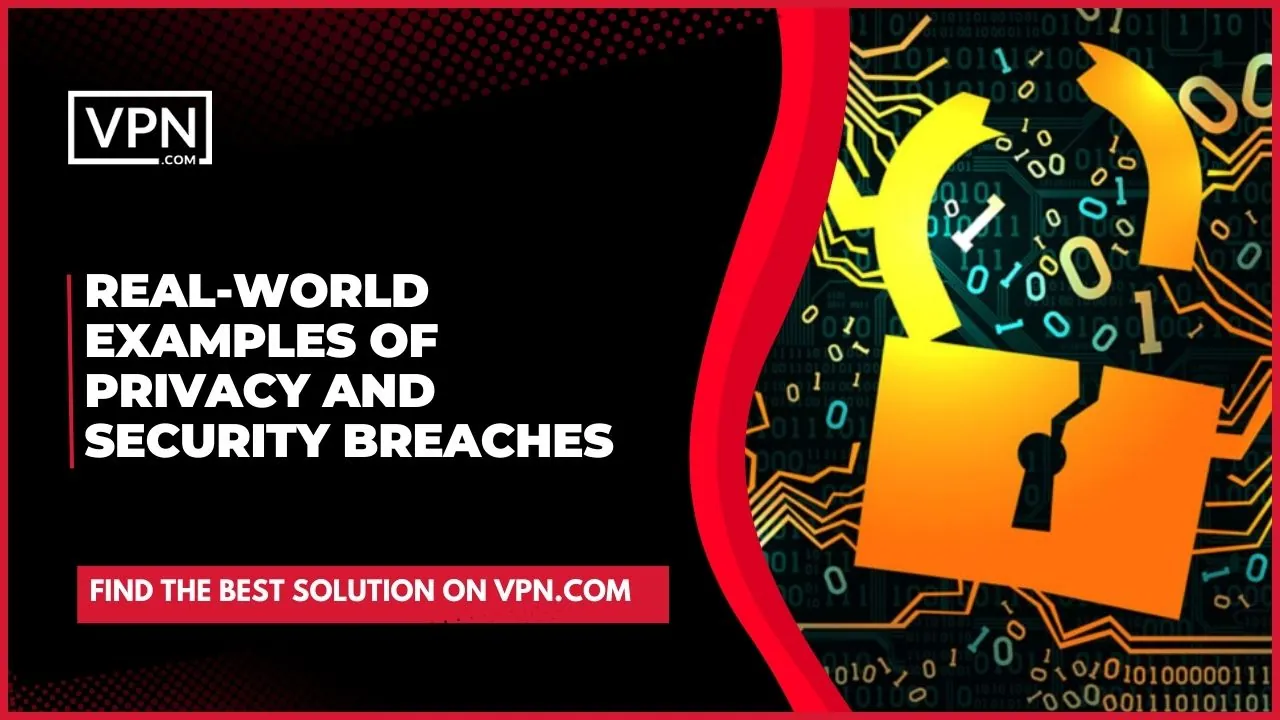
In the modern internet environment, privacy and security breaches have become a genuine concern to both individuals and businesses. Cybercriminals are increasingly targeting individuals and businesses with high-profile data breaches, harmful assaults, identity theft, and other forms of digital espionage, according to security experts.
In addition, authorities frequently utilize their authority to monitor the activities of their citizens and shape public conversation by censoring specific topics in the digital arena. Thus, it is necessary to take proactive efforts to preserve one’s online privacy by adopting VPN for internet privacy to keep data protected from digital thieves and governments.
Also, being cautious of the nature of the data you upload online can prevent costly outcomes such as personal data leaks and even reputational damage. By taking these precautions seriously, individuals and organizations can avoid becoming another unpleasant statistic regarding breaches of internet privacy.
Importance Of Taking Action
Internet privacy and security have become key concerns in the digital age due to the growing online presence of individuals and organizations. Individuals, corporations, and even governments have been affected by high-profile data breaches.
Unsuspecting users may also be susceptible to surveillance or censorship without their agreement from the government or other entities. All of this has resulted in some degree of negative repercussions, such as the facilitation of identity theft using private information and the potential for blackmail as a result of being viewed or followed without consent.
To safeguard one’s online existence, it is essential to understand VPN for internet privacy and apply data security regulations and procedures. VPNs are required for daily activities such as accessing social media platforms, banking apps, and other sources requiring a secure connection.
VPN for internet privacy give an additional layer of protection against risks such as cyber attacks. Implementing internet safety precautions is an absolute necessity in today’s interconnected world.
Get Started w/ NordVPN Today
- Top-rated VPN for OS unknown
- Ultra-fast speed in 2024
- Save 69% off with VPN.com Discount
- Plans starting at $2.99/month
- Rated 4.5/5 on Google Play with over 825,000 reviews
- Rated 4.7/5 on Apple App Store from 6,600 users
How To Get A VPN For Internet Privacy
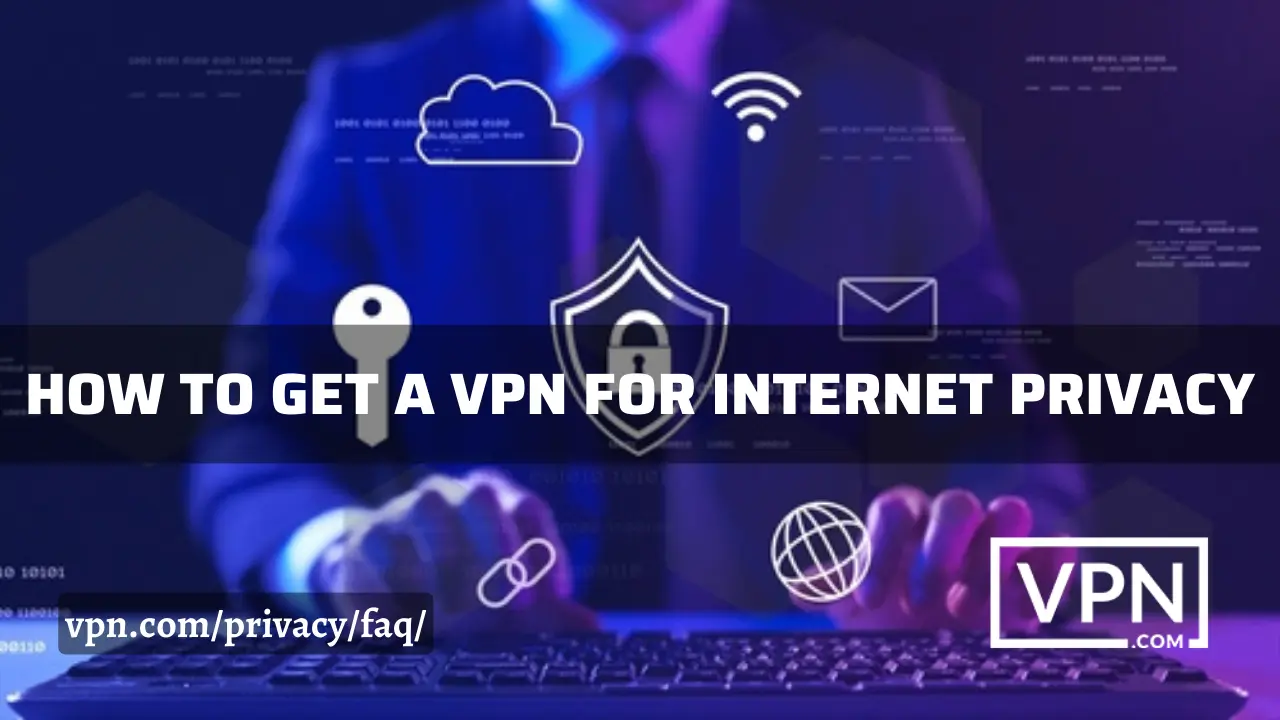
Virtual private networks (VPNs) are a fantastic method to enhance your online security and privacy, but they may be costly. Yet, there are unpaid VPN services available.
One option is to sign up for a VPN service that offers a free trial. You may test out a service without spending any money thanks to the free trials offered by many vendors.
Using a peer-to-peer (P2P) network is yet another technique to get a VPN for internet privacy without spending a dime. Several peer-to-peer (P2P) networks also include free VPN services, allowing you to securely share and access your files while on the go. Keep in mind, though, that these options might not be as fast or secure as paid VPNs.
Looking for coupons and discounts is another way to ensure you’re getting the greatest bargain on a VPN for internet privacy. It’s a good idea to check out the websites of various VPN providers to see what kind of specials and discounts they’re currently offering.
In conclusion, keep in mind that free VPNs could not be as safe and private as commercial VPNs. In order to ensure your privacy and security while using the internet, you may choose to subscribe to a premium Virtual Private Network service.
You should always do your homework before signing up with a VPN service, but it’s especially important when looking for the best VPN service. A virtual private network (VPN) is a great way to safeguard your personal information while online and to unblock geo-restricted content and websites, both of which will enhance your browsing experience. We recommend NordVPN for internet privacy since it is the most secure VPN available today.
How VPNs Work?
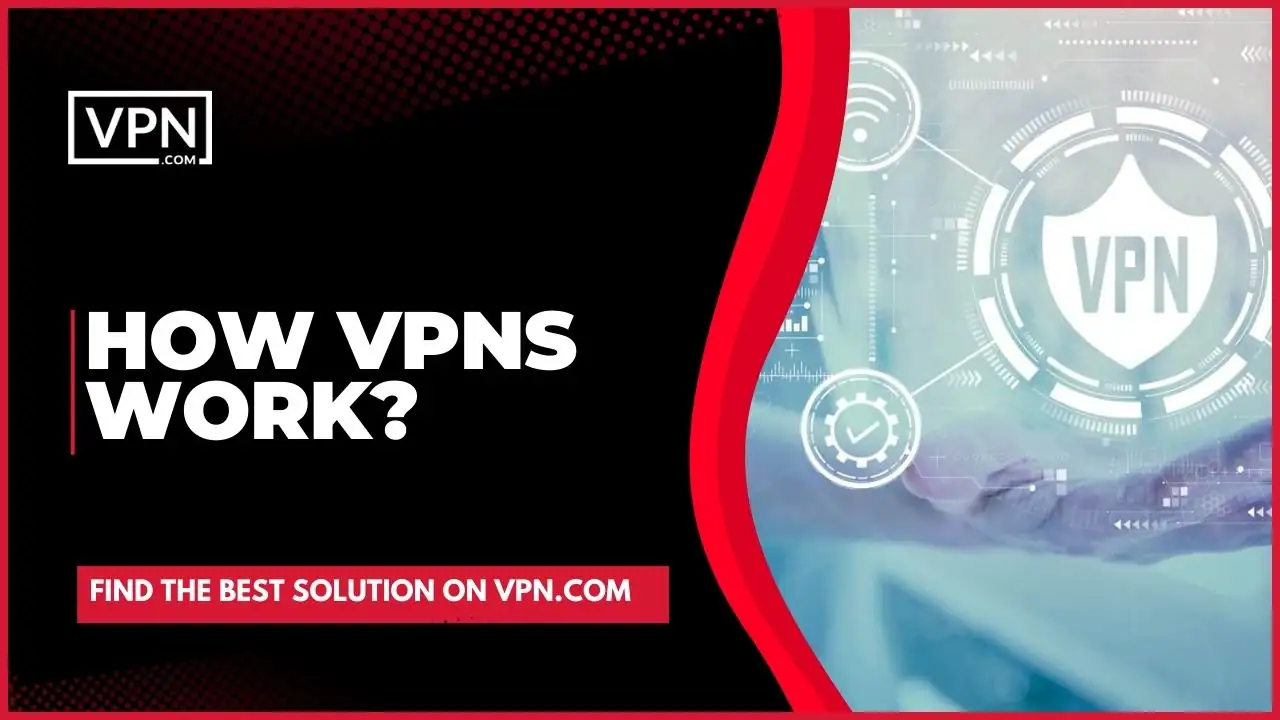
VPN for internet privacy are an invaluable tool in protecting online privacy and security. VPNs use powerful encryption algorithms, such as NordVPN’s AES-256, to secure your data during transmission from one node to another. This takes the form of a secure, encrypted virtual tunnel which prevents third parties from intercepting or tampering with sensitive information.
The VPN for internet privacy also use various protocols to enhance the level of data protection, such as PPTP and OpenVPN. For example, OpenVPN provides maximum security for data transmission over the internet because it offers 256-bit AES encryption, multiple layers of authentication and even 2048-bit key negotiation.
VPNs come in a variety of shapes and sizes and differ in their functionality and levels of security – from application specific VPNs like NordVPN’s iOS app and browser extensions to subscription services that offer VPN connectivity across different devices. Ultimately, VPNs provide users with superior online privacy when they are accessing the Internet whatever device they are using.
Benefits Of Using A VPN
VPNs or virtual private networks, offer tremendous benefits to anyone utilizing the internet. VPNs for internet privacy provide a secure connection to the online world and are able to keep sensitive information from becoming vulnerable to malicious actors on the internet. By encrypting your data, VPNs for internet privacy are able to protect users’ privacy and security regardless of their location.
These VPNs even allow for access to typically restricted geo-restricted content, including streaming services, news sites, and social platforms. A great example is NordVPN. It has been trusted by journalists, activists, and whistleblowers around the world in order to protect their sensitive information from getting into the wrong hands.
VPNs for internet privacy are an invaluable tool for individuals who value their privacy while navigating the web securely and easily.
Get Started w/ NordVPN Today
- Top-rated VPN for OS unknown
- Ultra-fast speed in 2024
- Save 69% off with VPN.com Discount
- Plans starting at $2.99/month
- Rated 4.5/5 on Google Play with over 825,000 reviews
- Rated 4.7/5 on Apple App Store from 6,600 users
Difference Between VPNs, Proxies, And Tor Networks
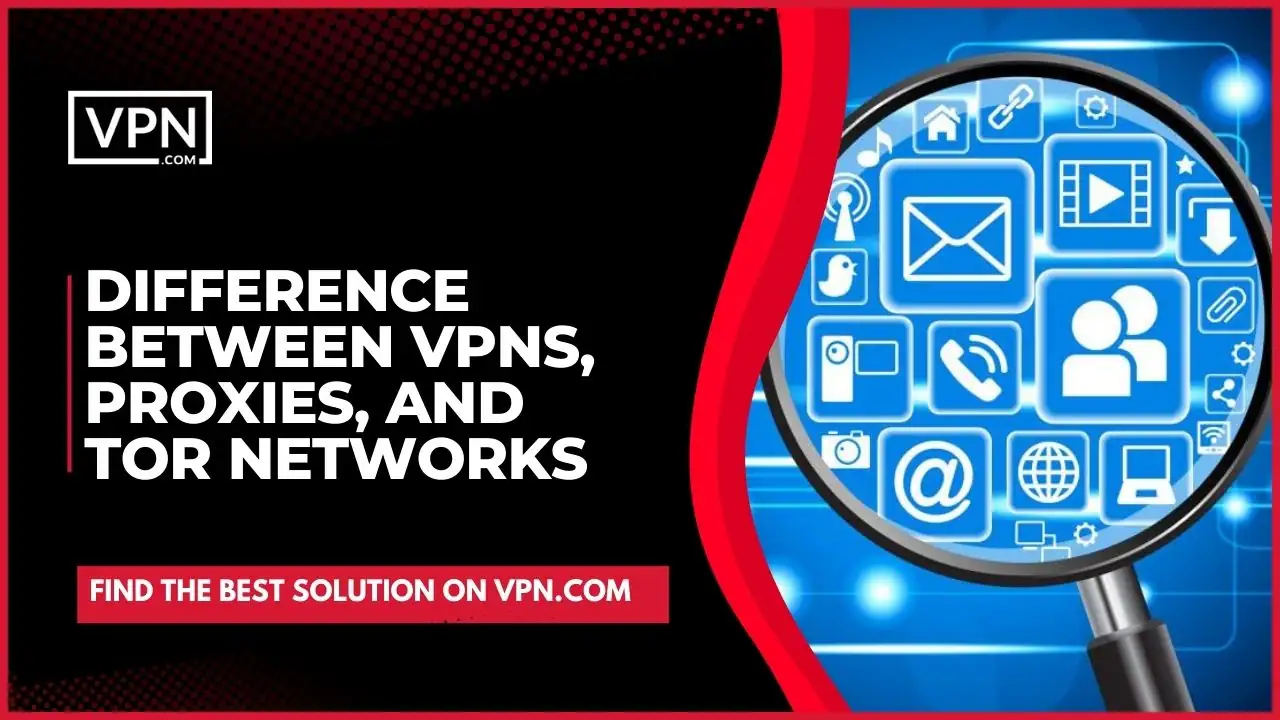
Proxy servers connect your computer to websites. Your traffic goes through a proxy server before reaching the website when you connect. The proxy may see all traffic and log your activities.
VPNs act like proxies but are safer. VPNs encrypt all data, so proxies cannot see or log your traffic. VPNs are safer than proxies.
Privacy-protecting Tor Networks are encrypted. Tor Network nodes route all traffic. This makes it hard for anyone to follow or view your internet activity.
One of the main reasons to use a VPN is to protect your identity and personal data. Encrypting your data protects you from your ISP and third-party trackers. This prevents identity theft, internet scams, and other privacy breaches.
VPNs are wonderful for online privacy and security. VPNs are safer than proxies and can reduce internet hazards. VPNs protect your data from third-party advertisements and prying eyes by encrypting it. Use the best VPN to be safe and private online.
Choosing a VPN Provider
VPNs or virtual private networks, are increasingly popular among online users wanting to secure their privacy and safety. VPNs encrypt your data and help protect sensitive information such as passwords and credit card numbers from identity theft when you’re online.
It’s therefore critical to do research, read user reviews, and compare the top VPN providers before making a decision. Factors like security, server locations, ease of use, customer support, and cost should all be taken into account when deciding which VPN provider is right for you.
NordVPN is a leading VPN provider with impressive encryption protocols as well as tons of servers worldwide; however, it may also require a more expensive monthly subscription compared to some of its rivals. All things considered, VPN for internet privacy is a must-have for safeguarding your online security and freedom in this ever-evolving digital age.
Factors To Consider When Choosing A VPN Provider

It is therefore important to choose the right VPN provider, one who offers the highest level of security through encryption standards and measures that protect your device and information.
Additionally, consider the location of servers provided by VPN providers — broader coverage generally entails better protection. Additionally look into user interface and ease of use, customer support and reliability, as well as payment options when choosing the right VPN provider — all of these will contribute to ensuring a safe and secure online experience.
Comparison Of Top VPN Providers
With the continued growth of the internet and our increased use of it for everything from communication to shopping, VPN for internet privacy becoming an increasingly important tool for protecting your online privacy and security.
VPN providers offer a range of services, from basic security protocols to comprehensive server coverage. Whether you’re looking for VPN for internet privacy to provide protection when accessing public networks or simply want to securely access streaming services not available in your country, there is no shortage of VPN providers on the market.
When selecting a VPN provider, comparing their features, security protocols, server coverage and pricing is incredibly helpful.
Additionally, checking user reviews and ratings can provide valuable insight into how well VPNs perform in different scenarios. With VPNs more popular than ever before, there’s never been a better time to make sure you select one that meets all your needs – so compare away!
Evaluating VPN Provider Security
In today’s world, digital privacy means much more than it used to. VPNs have become an essential security measure for anyone engaging in any type of online activity. To ensure a reliable level of protection against cyber threats such as DDoS attacks or IP leaks, it is important to understand VPN protocols and encryption standards.
Additionally, it is crucial to read through VPN providers’ privacy policies and compare different VPNs based on their security features; this will help you make a reliable decision when selecting a VPN that works best for your online needs.
If you are at a loss when trying to compare VPNs, reviews can be extremely helpful in providing essential information and insights. Informed decisions lead to better VPN selection and improved online protection!
Performance And Speed Considerations
VPNs have become an increasingly popular and reliable tool for online privacy and security, but VPN speeds can vary significantly. Factors such as server location, encryption, and protocols used can all impact VPN speeds.
To optimize VPN performance, users should connect via a wired connection and select their VPN server’s location wisely by reading online reviews for more accurate information about VPN speeds in different locations.
Additionally, tools such as speed tests and latency checks can be used to measure VPN performance to ensure the best experience possible. All of these processes are vital for maintaining internet safety while providing a rapid connection, so be sure to implement them whenever you use a VPN!
Legal And Ethical Considerations
VPNs have become an integral part of online privacy and security. Understanding the legal and regulatory environment surrounding VPNs is critical to ensure both security and ethical compliance. To start, VPN protocols should be thoroughly reviewed to ensure they meet accepted standards for data encryption and privacy policies.
Additionally, researching potential legal and ethical risks associated with using a VPN provider can help identify any issues before they cause problems. Whether it be bypassing geolocation restrictions or accessing copyrighted content, understanding the interplay between VPN use and ethics can ensure your activities are compliant with laws and regulations.
Taking time to research VPNs and read reviews by other users can provide an opportunity to make an informed decision when selecting Information Security solutions that protect information appropriately.
Setting Up a VPN
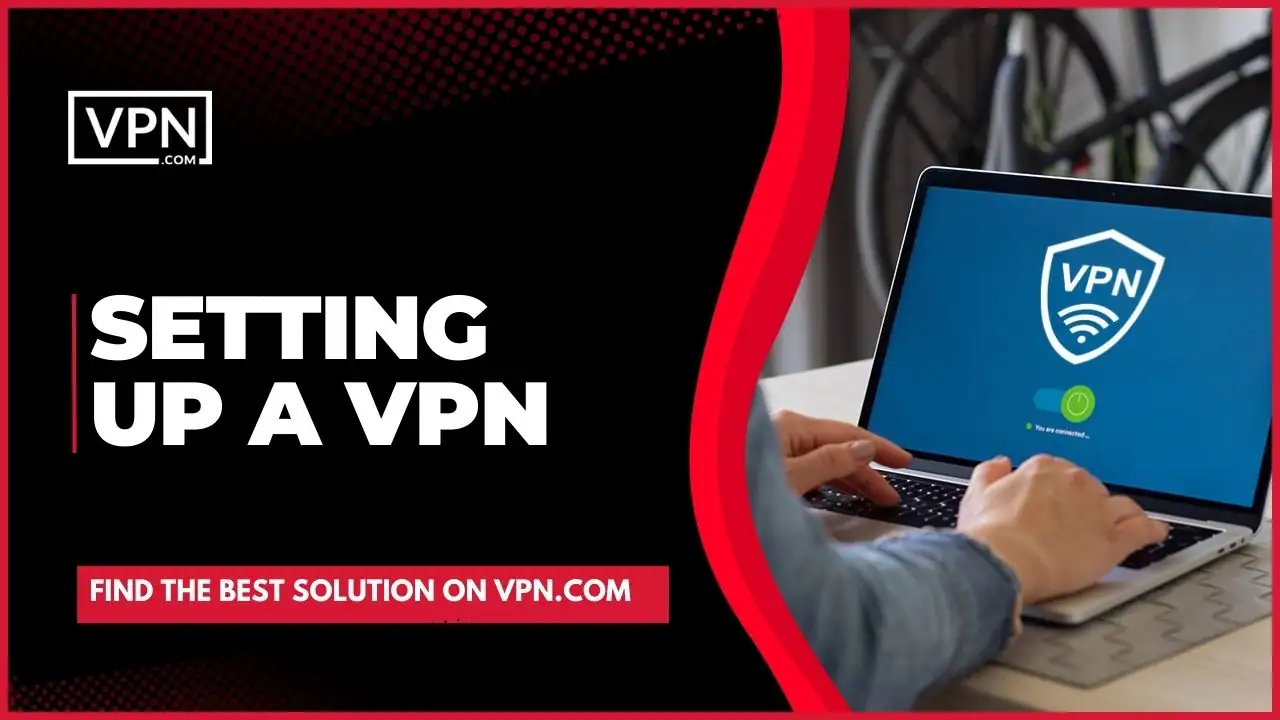
If you are looking to stay secure and maintain your online privacy, setting up a VPN is a great first step. VPNs provide an added layer of security while surfing the web by redirecting your internet traffic through an encrypted connection.
When choosing a VPN provider, it’s important to ensure that they offer reliable performance, quality customer service, and robust features. NordVPN offers all of this and more! After choosing a VPN provider, the next step is installing the VPN software. Most VPNs today come with easy-to-follow installation guides that will get you up and running in no time.
Once you have everything installed and ready to go, you will want to configure your VPN settings in order to get the most out of it. For maximum security and ensure that your information is kept safe online, be sure to utilize strong protocols such as OpenVPN or IKEv2/IPSec—both can provide symmetric encryption while offering usage flexibility.
Additionally, remember to configure your firewall accordingly as well as use multi-factor authentication when logging into your VPN account for extra protection. With these tips in mind, setting up a VPN can be quick and simple so you can start browsing worry-free!
Using A VPN On Your Phone
If you are looking to stay secure and maintain your online privacy while using your mobile device, setting up a Virtual Private Network (VPN) is an important first step. First, download and install the VPN app of your choice onto your device.
Once the app is installed, you can connect to a server in order to encrypt both outgoing and incoming data being sent from or to your phone. Depending on the chosen provider, configuring additional security settings may be available as part of the installation process.
Of course, utilizing a VPN comes with its own set of advantages and limitations; however overall it can provide heightened security for browsing websites and data-sensitive applications over any public or private network. If properly configured, this can be just what users need for maximum privacy and security on their mobile devices.
Drawbacks Of Using A VPN
VPNs, or Virtual Private Networks, are important tools in ensuring your online privacy and security. However, VPNs do have their limitations and can be costly and complex to use. VPN protocols can dramatically slow down internet speeds, and may also be subject to compatibility issues with other equipment used to access the internet.
Furthermore VPNs require users to trust the network with their information, as there is a risk of data leakage and unauthorized access depending on who you are connecting with. While VPNs have many advantages, it’s important to take into consideration their potential drawbacks when making a decision about the best online solution for your needs.
Alternatives like Tor and proxy servers can provide greater security without the complexity or cost of VPNs, so it’s worth exploring options before committing to any one protocol or service provider.
VPN Myths
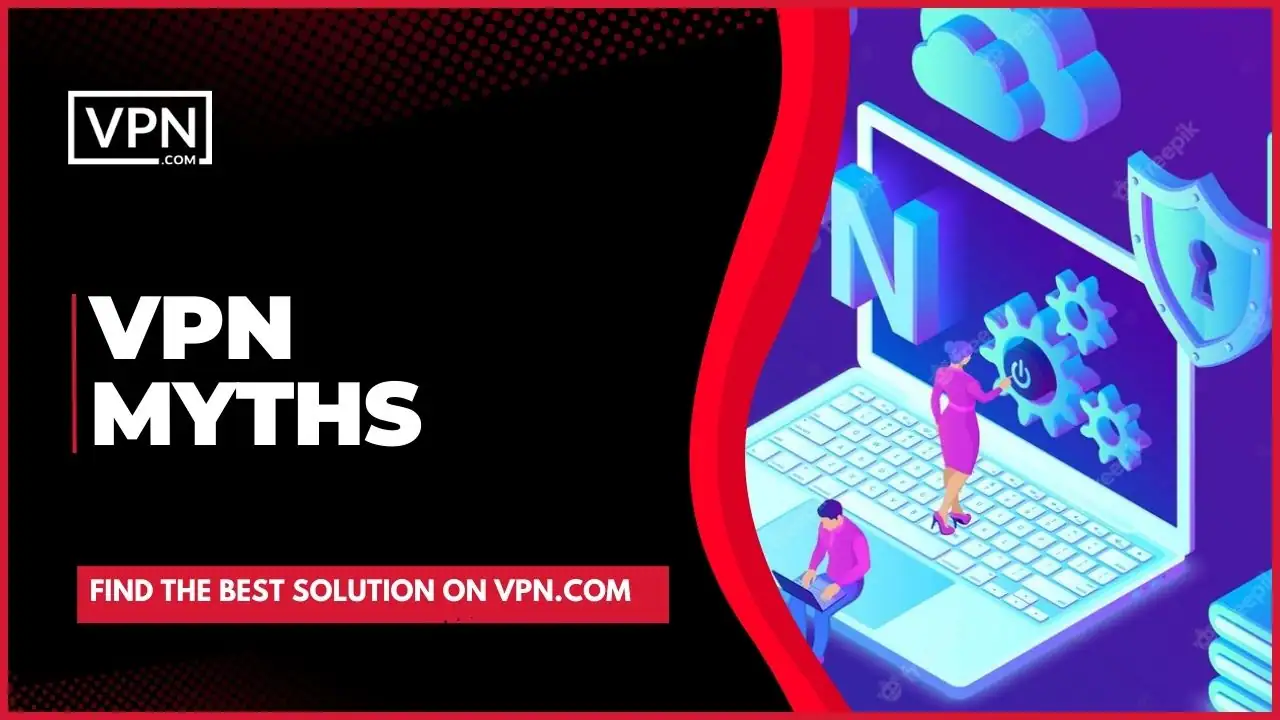
VPNs (Virtual Private Networks) have grown in popularity in recent years due to its ability to keep online activities and data private and secure, but there are still many misconceptions about what VPNs can achieve.
Frequent VPN myths include that VPNs give perfect privacy, that VPN usage is unlawful, that VPNs constantly slow down your internet speed, that free VPNs are just as good as premium VPNs, and that VPNs guard against all online threats automatically.
All of these clichés are untrue; VPN protocols are focused on boosting privacy and security while also providing faster connections with the correct provider. For instance, paid VPN services typically offer quicker connections due to their usage of more dependable servers.
However, it is not advised to rely exclusively on VPNs for security; extra best practices, such as installing software updates periodically, should also be followed. To prevent being confused about virtual private networks (VPNs), it is necessary to investigate authoritative evaluations and reputable news sources for reliable information.
In addition, it is essential to raise knowledge of proper VPN usage so that others do not fall victim to their lack of comprehensive security measures and limits.
Get Started w/ NordVPN Today
- Top-rated VPN for OS unknown
- Ultra-fast speed in 2024
- Save 69% off with VPN.com Discount
- Plans starting at $2.99/month
- Rated 4.5/5 on Google Play with over 825,000 reviews
- Rated 4.7/5 on Apple App Store from 6,600 users
Myth: A VPN Provides Complete Anonymity
VPNs are often seen as a foolproof answer to ensuring complete privacy when using the Internet, but this is a myth. VPNs offer a level of encryption and security protocols that make it difficult for anyone to monitor an individual’s online presence and track their data, but there are other factors that can be clues as to someone’s identity or location.
Key indicators may include topics discussed in comments or reviews that reference local landmarks, as well as IP address logs stored by various services even if VPN connections have been used.
VPN services vary greatly in their effectiveness so users should research providers carefully about which service best meets their needs before signing up with one if they wish to protect their online information and remain anonymous.
Myth: All VPNs Are Equally Secure
The myth that all VPNs are equally secure is a common misconception stemming from the thought that their primary purpose is to provide an encrypted connection to maintain your privacy. While many VPN providers do prioritize security and encryption, it’s crucial to understand that standards and measures may vary among them.
These differences can significantly impact the overall safety and user experience one can expect from a chosen VPN service. Therefore, it is of utmost importance to thoroughly research a VPN provider’s security protocols before committing to a subscription.
This will help ensure that the service you opt for complies with the highest standards of encryption, protecting your private data from prying eyes and keeping your online activities anonymous. Armed with this knowledge, you can separate fact from myth and make an informed decision, choosing a VPN that best suits your security needs and preferences.
Myth: Using A VPN Will Always Slow Down Your Internet Connection
In recent years, VPNs have gained popularity as more and more individuals recognize the significance of internet privacy and security. Before making a decision, it is essential to thoroughly investigate each VPN provider’s security methods, despite the fact that many VPN services claim to offer excellent encryption standards.
Although it may be tempting to choose the VPN with the most appealing features or the lowest price, that VPN may not provide adequate protection for your data. VPNs are not a “one-size-fits-all” internet privacy solution.
Each VPN company offers varying degrees of online security; some offer stronger encryption than others. When signing up for a VPN service, it is essential to read reputable reviews and compare multiple suppliers in order to choose one that meets your security and privacy needs the best.
Myth: VPNs Are Only For Tech-Savvy Users
Virtual private networks, have become more and more popular over the past few years as people try to protect their privacy and security online. But VPNs have a bit of a myth that they are hard or nearly impossible for people who aren’t tech-savvy to set up and use.
This isn’t true at all; both setting up protocols and understanding the technology behind VPNs can be very easy. In fact, many VPN providers now offer customer support tools to make it easier for new VPN users to get started.
There are even user reviews online that can help you figure out how easy it is to use a VPN service. VPNs really can be helpful for anyone who wants to keep their data and information safe on the internet, no matter how technical they are.
Myth: VPNs Are Only Used For Illegal Activity
VPNs have become increasingly popular in the information age. VPNs provide a secure connection by using encryption protocols that keep user data safe and secure as it travels across the internet.
VPNs also can be used for legitimate purposes, providing users unprecedented access to websites that would otherwise be unavailable due to geographic restrictions. Not only do VPNs grant users access to restricted content, but VPNs also offer an additional level of protection for those users concerned with online privacy and security.
VPNs allow individuals to search and browse without fear of having their personal information compromised or exposed. It is important to note that using VPNs is not limited to illegal activities; VPN technologies are valuable tools when utilized correctly and ethically.
More often than not, these misconceptions are associated with false reviews rather than firsthand accounts. Before relying on any VPN service, an individual should make sure to research its protocols fully and review customer feedback to ensure they select a trustworthy solution for their online needs.
Get Started w/ NordVPN Today
- Top-rated VPN for OS unknown
- Ultra-fast speed in 2024
- Save 69% off with VPN.com Discount
- Plans starting at $2.99/month
- Rated 4.5/5 on Google Play with over 825,000 reviews
- Rated 4.7/5 on Apple App Store from 6,600 users
Conclusion
VPN for internet privacy play an important role in preserving and protecting online privacy and security. By providing encryption protocols, VPNs are capable of hiding users’ data from third-party agencies, ensuring that everything remains secure.
In this blog post, we have reviewed some of the essential features of VPNs: the type of encryption which should be available; the level of security that VPN users can expect; and the pros and cons associated with VPN use. Now, it is up to readers to evaluate their own online privacy and security needs, and consider using a VPN if they feel these need to be further protected.
As technology, threats, and protocols all continue to evolve at rapid speeds – vigilance when it comes to one’s own security is more important than ever before. Taking advantage of a VPN can help users stay secure as they go about their lives on the internet.
Customer Reviews for NordVPN: In-Depth Review, Tests, and Stats
Connection issues with MLB.TV
May, 2 2023
Prompt customer service
May, 6 2023
I would highly recommend
December, 15 2023
